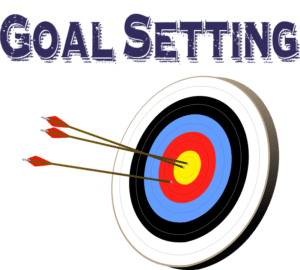How to Achieve Your Goals in 2023: A Comprehensive Guide to Goal Setting
As we enter another year, it’s natural to reflect on the past year and think about what we want to achieve in the future. Setting goals is a crucial part of personal and professional growth, and it helps us stay motivated, focused, and productive. In this comprehensive guide to goal setting, we’ll explore why goal setting is essential, how to track goals using milestones, the importance of writing down goals, and the definition of smart goals. We’ll also provide practical tips and examples to help you achieve your goals in 2023.
Why Goal Setting Is Important?
Setting goals provides direction, purpose, and motivation. Without goals, individuals are just drifting through life without a plan, and they are reactive to whatever comes their way. Setting goals allows individuals to take control of their lives and be proactive toward achieving their desired outcomes. Goals also provide clarity, focus, and a sense of accomplishment when achieved.
The Importance of Milestones
Milestones are essential for tracking progress toward goals. They are a measurable subset of a larger goal that allows individuals to effectively track their progress. Milestones help individuals stay motivated, focused, and accountable. For example, if your goal is to start a weight loss program and lose 30 pounds, you could set two additional minor goals (milestones) of losing 10 and 20 pounds towards your ultimate goal of losing 30.
Writing Down Your Goals
Writing down goals is a critical step in achieving them. It has been proven that individuals who write down their goals are more likely to complete them than those who don’t. Writing down goals makes them more concrete, specific, and actionable. It also helps individuals stay focused, motivated, and accountable. In fact, a study by Harvard Business School found that only 3% of graduates had written goals and executable plans to achieve them. However, after following up ten years later, the group who had goals but never wrote them down earned twice as much as the group who had no goals at all. The 3% who had actionable written goals were earning 10 times as much as the other 97% of the class combined.
What is goal setting in business?
 Definition of Goal – The process of deciding what an individual wants to accomplish and the act of devising a plan to achieve the results within a defined timetable. For entrepreneurs, goal setting is an important part of business planning and strategy. The definition emphasizes that the user must put thought, commitment, and action into the process.
Definition of Goal – The process of deciding what an individual wants to accomplish and the act of devising a plan to achieve the results within a defined timetable. For entrepreneurs, goal setting is an important part of business planning and strategy. The definition emphasizes that the user must put thought, commitment, and action into the process.
The Definition of SMART Goals
SMART goals are specific, measurable, achievable, relevant, and time-bound. They are goals that are defined as being specific, measurable, achievable, relevant and time-bound. In essence, a SMART goal is a goal on steroids. It asks for very specific, measurable success by giving parameters versus a blanket desire. For example, a SMART goal could be to hold a weekly project meeting with the key members for an hour every Tuesday at 9 am. Another one could be setting up a new seasonal campaign with a transition time of X, sales goals of Y, and profit of Z.
What is a Smart Goal? Example
A goal and a smart goal are very similar; but slightly different. A goal typically supports my own goal for a span of time. That goal could be weight loss, going to bed on time, or making better eating choices. While a SMART goal is defined as a goal that is specific, measurable, achievable, and time-sensitive. In essence, a SMART GOAL is a goal on steroids. It asks for very specific measurable success by giving parameters versus a blanket desire. For example, a smart goal might be to hold a weekly project meeting with the key members for an hour every Tuesday at 9 am. Another one could be setting up a new seasonal campaign with a transition time of X, sales goals of Y, and profit of Z.
A SMART GOAL acronym:
S – specific, significant, stretching
M – measurable, meaningful, motivational
A – agreed upon, attainable, achievable, acceptable, action-oriented
R – realistic, relevant, reasonable, rewarding, results-oriented
T – time-based, time-bound, timely, tangible, trackable
Who defined SMART goals?
SMART goals were first coined by ‘George Doran back in 1981. It was developed for a US-based company he was assisting in finding an effective way to write management goals and objectives. The original five were:
Specific
- Well defined
- Clear to anyone that has a basic knowledge of the project
Measurable
- Know if the goal is obtainable and how far away completion is
- Find out when you have achieved your goal
Agreed Upon
- Agreement with all the stakeholders on what the goals should be
Realistic
- With the availability of resources, knowledge, and time
Time-Based
- Enough time to achieve the goal
- Not too much time, which can affect project performance
How is goal setting effective?
For effective goal setting, you need to do more than just decide what you want to do. You have to put in the time, sweat, and tears that go along with the work associated with whatever goal you have set for yourself. It’s your strategy that will assist in guiding and offering you steps toward accomplishing the goal. Without a strategy, you allow others to dictate your success and your path of life which is no way to run a successful business! To be successful, you need to make things happen, not just let things happen.
5 points to illustrate, why goal setting is important
- Goals give you focus – Imagine having to drive a car without being given directions to a place you have never been to. How would you get there? How long will it take? Do you have enough gas? And let’s say for argument, that you jumped in the car and started driving(out of sheer bewilderment). Which direction would you go? And truly without being prepared what would the purpose be? Get an idea? This is a literal example of what life is like without a goal or some type of target in mind. It’s pointless and a waste of energy and effort. You can have all the potential in the world; but without focusing your abilities and talents, the act would be completely useless. Just like how sunlight can’t burn through anything without first being magnified through a glass focusing it to a target. By setting your goals, you give yourself a target to shoot for, and a sense of direction which will allow your mind to focus and find a known and unknown solution to your goal.
- Goals allow you to measure your progress – By setting goals for yourself you are able to measure your progress at any moment during your progression. Take this scenario for example, a teacher by the name of Gabriella decides to write a children’s book with a minimum of 250 pages within the next 3 months (i.e. Goal). She starts writing each and every day working late nights, and weekends as she can. Along the way, she loses track of how many pages she has written and wonders how much more she will need to write. So rather than stressing about it, Gabriella simply counts the number of pages she has written and instantly calculates her progress and how many pages she needs to go before the end.
- Goals keep you locked on target and focused – By setting goals you give yourself mental boundaries. When you have a certain endpoint in mind you automatically stay away from certain distractions and stay focused on the goal. This process happens automatically and subtly but according to research does happen. To get a better idea, imagine this. Your best friend is moving to Los Angeles and his flight takes off at 7 PM. You leave right after work at 5:30 PM to see him off and you know it’s a 15-minute walk to get to the airport. So you make it a goal to reach the airport in 10 minutes by jogging so you can have more time to say your goodbyes. Do you think you will get distracted by anything along the way? Would you stop for a break? Would you stop by your house before going to the airport? It is a safe bet that you most likely answered no to each of those questions. At the end of the day, this is exactly what a goal gives you… FOCUS. No matter whom you meet along the way or what you happen to see, your goal allows you to stay locked in and on time. Subconsciously you will keep away from distractions and focus your remaining time on your goal.
- Goals Help You Overcome Procrastination – When you set a goal for yourself you make yourself accountable for completing the task. This is in complete contrast compared to when you do things based on a whim not really caring whether you complete it or not. Goals tend to get implanted in your mind and reviewing them daily will be the best reminder and tracker you have. These reminders set and controlled by the subconscious help you to overcome procrastination and laziness.
- Goals Give You Motivation – The root of all action in this world is driven by one of two things: Inspiration or Desperation. Goals tend to inspire us to greatness; to become more than we are, and propel us into action. Making your goals should excite and motivate you.
Living Life Your Way
So far, we have discussed what goals are and why they are important. Are you ready to live life your way? So many feel as if they are drifting along the river of life with no real guidance or method to get anywhere fast. People work, play, eat, sleep, and repeat. Just taking everything day by day spending their energy getting nowhere fast. There is no reason to live life this way… get a map… get directions and spend time formulating your goals. It’s time to set your goals!
Goal Setting and Action Planning
You should begin your goal setting by looking at your lifetime goals first; then goals that can be completed within the next five years; next year; the next 30 days; or the next 7 days; and by the end of today. Now when setting your goals you should organize them on a couple of different levels:
- Create goals that fit the “Big Picture” of what you want to do with your life, and identify the large-scale goals that you want to achieve.
- Break these goals down into the smaller and smaller targets that you must hit to reach your lifetime goals.
- Finally, once you have your plan, start working on it to achieve these goals and do something each and every day.
Goal-Setting Journals, Books, and Programs
So don’t think we are just going to let you flounder around all by yourself. Here is a list of Goal Setting Books, Programs, and Journal Books to get you started.
- [BOOK] Free to Focus: A Total Productivity System to Achieve More by Doing Less (by Michael Hyatt)
- [BOOK] Goals: How to Get the Most out of Your Life (by Zig Ziglar)
- [BOOK/AUDIO] Your Best Year Ever: A 5-Step Plan for Achieving Your Most Important Goals
- [AUDIO] How to Stay Motivated: The Goals Program
- [JOURNAL] Pursuit Goal Journal – A Unique, Down-to-Earth Method for Productivity, Motivation, Mindfulness, and Goal Planning. 6 x 8.5 inches. (Charcoal)
- [JOURNAL] The Five Minute Journal: A Happier You in 5 Minutes a Day | Original Creator of The Five Minute Journal – Simple Daily Guided Format – Increase Gratitude & Happiness, Life Planner, Gratitude List
- [PLANNER] Goal Crazy Undated Planner – 90-Day Guided Journal, Weekly Organization, Productivity Habit Tracker, Inspirational, Life Setting, Black Leather, Almond Pages
List of Goals – Areas which can help with your goal setting (Types of Goals)
I find that when you ask someone to define and write their goals they typically start off covering areas for their career, money, materialism, and miss areas that may offer the deepest emotional and personal gratification. Below are a few areas I would like for you to review…
- Artistic Expression Goals – Do you want to achieve any artistic goals?
- Goal Setting Mindset – Is any part of your mindset holding you back? Is there any part of the way that you behave that upsets you? (If so, set a goal to improve your behavior or find a solution to the problem.)
- Goal Setting in Business – Do you want to change careers? Want to reach a new level in your career? or is there something specific you want to achieve?
- Goal Setting in Education – Do you need to go back to school? Want to take up painting? Is there any knowledge you want to acquire in particular? What information and skills will you need to have in order to achieve other goals?
- Personal Goal Setting / Travel Goals – Family vacation? Want to find Mr or Mrs. Right? Want to be a parent? Adopt? How do you want to be seen by your partner or by members of your family?
- Goal Setting and Career Planning – How much money do you want to earn? By what stage? How is this related to your career goals?
- Goal Setting Health and Exercise – Are there any athletic goals that you want to achieve, or do you want to simply be in good health as you enter into those golden years? What steps are you going to take to achieve this?
- Personal Enjoyment – How do you want to enjoy yourself? What makes you happy? And Is there something that is just for you that you want to add to your goal list?
- Helping Others with Measurable Goals – Do you want to make the world a better place? Can you donate your time at the homeless shelter, hospital, school, or church? If so, how?






